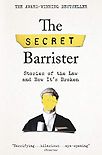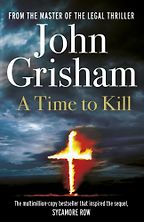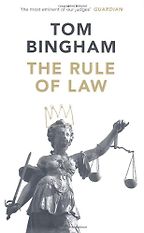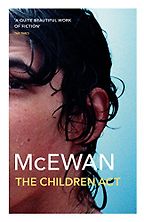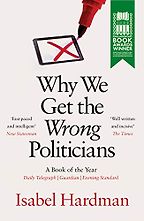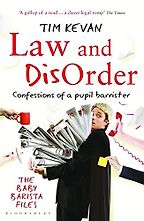A functioning criminal justice system is vital to our health as a society. But your book paints a deeply revealing picture of administrative incompetence in the English legal system. We see lawyers receiving their briefs only minutes before they are to present them in court, of blocked communication channels, of court dates being repeatedly postponed, and of crucial evidence vanishing without trace. How did we get to this state?
It sounds like a simplistic diagnosis, but the common theme behind many of the ills of the criminal justice system is a chronic lack of resources. No part of the criminal justice process—from police to the Crown Prosecution Service to legal aid to the courts to probation to the prisons—is sufficiently resourced to perform its functions safely and competently. By the early 2020s, the Ministry of Justice will have had its budget cut by over half (51%) in a decade, and this was from a starting point of being underfunded.
“By the early 2020s, the Ministry of Justice will have had its budget cut by over half (51%) in a decade”
The problem with justice is that it simply isn’t a sexy political subject. Aside from transient excitement piqued by tabloid headlines about “soft judges” or “cushy prisons”—headlines which, by the way, are almost always factually inaccurate or misleading—there is little public interest in how criminal justice does or doesn’t work.
People only realise how much they depend on functioning justice when it’s too late—when they are the victim of a crime, or a witness, or find themselves or their loved ones accused of a criminal offence. This disconnect means that it has been politically easy for successive governments to hack away at the foundations of the legal system without incurring any democratic penalty.
You’ve been blogging your experiences as a junior criminal barrister for a few years now. Was there a particular interaction, a turning point, when you decided to become ‘The Secret Barrister’?
The turning point came one evening after I had regaled my partner yet again about a catastrophic failing in one of my cases. Having listened attentively and patiently to variants on the same theme for some years, they politely but firmly suggested that I start a blog and Twitter account to share my complaints with a different audience.
Part of the reason we have ended up in this mess, I believe, is that we professionals in the system have historically been very poor at communicating to the public what we do, why it matters and what the problems in the system are. I hoped that by writing something aimed at a non-legal audience it might draw some attention to the things that we see going wrong every day.
As well as being accessible, funny, and meticulously researched, your book shows a real sense of civic responsibility and respect for justice. How do you keep that intact while working in such demoralising conditions?
Quite simply, the people. From talking to healthcare professionals, I think there are strong parallels between justice and the NHS; while the system itself is on the brink, the people toiling within are magnificent, and keep the impossible show on the road by sheer force of will. I am blessed to work alongside some of the most brilliant professionals who, despite what appears like coordinated malevolent political designs to make their lives as intolerable as possible, still don’t lose sight of why we choose this grim area of public life. When I’m having a bad day, they are there to pick me up and remind me why we stick with it.
You’ve picked the best books on justice and the law. Could you say a little about the considerations that shaped these specific book choices?
I have chosen books which have, in different ways, influenced my understanding of law and justice, and the overlap—although not synchronicity—of the two. On the off-chance that someone from a non-legal background was marooned on an island and in dire need of instilling in themselves a rudimentary and eclectic understanding of how our system works and the meaning of justice, these are the books I would drop from a plane.
Your first book choice is A Time to Kill by John Grisham. Set in 1980s Mississippi, this is a novel that engages with questions of systemic racism, vigilantism, and competing interpretations of justice.
This was the holiday reading book which, as a teenager, inspired me to pursue criminal law. The gritty reality of criminal practice is of course somewhat removed from the fictionalised ideal, and any lawyer acting in an English or Welsh court in the way that our hero Jake Brigance does in securing a just outcome for his innocent client would have to deal with fairly serious professional consequences. But the underlying themes transcend time and realities.
“This was the holiday-reading book which, as a teenager, inspired me to pursue criminal law”
Criminal justice only works if we have fair and independent prosecutors and tireless and courageous defence lawyers. It is too easily assumed, even given the cases we see and hear about in the papers and pop culture, that the criminal process is simply a production line in convicting the guilty person correctly accused by the police; that miscarriages of justice aren’t really a thing; that defence lawyers only exist to get their plainly guilty clients off on technicalities.
The uncomfortable eternal truths lurking in the shadows of our society—corrupt police officers, vexatious accusers, administrative incompetence and institutionalised prejudice—mean that we should never be so complacent as to assume that proper legal defence representation is a luxury. It is a fundamental right, and a necessary safeguard in keeping the system honest. Justice cannot survive without it.
Next on your list is The Rule of Law by Tom Bingham.
This book is cited as mandatory reading for all prospective law students at every law school in the country, but I would go further and decree it compulsory for all politicians and indeed anybody with any interest in public life. The rule of law is what binds our democracy.
Taking as his starting point the Lockean formulation that “Wherever law ends, tyranny begins”, Lord Bingham defines the rule of law as the principle that:
all persons and authorities within the state, whether public or private, should be bound by and entitled to the benefit of laws publicly made, taking effect (generally) in the future and publicly administered in the courts.
The book considers, in a clear and accessible way, the historical development of the rule of law, how its constituent parts operate in practice, and why they matter. The ambit and definition of the rule of law has been the subject of centuries of jurisprudential discussion and debate, but this contribution by the late Lord Chief Justice is justifiably considered one of the greatest.
Tell me about The Children Act by Ian McEwan. What does the book tell us about justice?
The Children Act explores, from the perspective of a High Court judge, a family law case in which the judge’s ruling will determine whether a child lives or dies, and the thorny interaction between the law, ethics, and morality. The book was published prior to several recent high-profile cases in which the courts were required to rule on life-and-death decisions involving desperately ill children, cases which attracted hostile international media attention due to a tsunami of misinformation generated by special interest groups, and is even more valuable in light of the likelihood of similar such cases emerging over the years to come.
This novel is as impeccably researched as you would expect given the author, which pleases the legal pedant in me, but its greater achievement still is its illustration of the humanity beating throughout the justice system. Our popular conception of judges tends towards the stereotype of the elderly, other-worldly, fuddy-duddies centuries removed from the realities of the modern world, but the truth is that the majority are brilliant and compassionate people acutely aware of the fact that they bear the weight of decisions that change the course of people’s lives.
In the book, Justice Fiona Maye is confronted by her husband who tells her that he wants to have an affair. We have a judge having to decide on a complex moral and legal issue while emotionally disoriented by her personal life. Would you say that the pull between one’s personal and professional life is particularly demanding in the legal world?
I would. The engine of the law runs on a fairly toxic cocktail of disturbing subject matter, heavy responsibility and unpredictable long hours, which can spill into and contaminate the happiest personal lives. I think the culture of the legal profession can be difficult for outsiders to understand, which perhaps explains why so many lawyers couple up with colleagues. The idea that, for instance, you are expected to simply cancel a booked-and-paid-for holiday if a trial overruns, or miss a wedding or a funeral at less than a day’s notice, is accepted as par for the course by lawyers; if your non-lawyer partner’s working culture is a healthier, more-boundaried 9-to-5, the two worlds can be hard to reconcile.
“The engine of the law runs on a fairly toxic cocktail of disturbing subject matter, heavy responsibility and unpredictable long hours”
I am fortunate to have a non-lawyer partner whose patience with my general unavailability and inappropriate dinner-table conversation borders on the saintly, but relationship crises at the Bar are regrettably common. We are, as a profession, belatedly recognising the importance of wellbeing at work and steps are being taken to address the incompatibility between legal culture and family life, but some elements—the stress, the hours, the subject matter—are perennial.
Next up is Why We Get the Wrong Politicians by Isabel Hardman.
I spend a lot of time writing, blogging and tweeting to correct misapprehensions about the legal system circulated by politicians, and criticising proposals for new laws purportedly aimed at “solving” the tabloid concern du jour. When I started this thankless enterprise, I couldn’t quite believe how our elected representatives could get so much so fundamentally wrong in their understanding of how the laws they have voted on actually work. Why We Get The Wrong Politicians lifted the cloud.
It explains, accessibly but forensically, how our political culture—from the way MPs are selected to the way in which laws are scrutinised—results in ill-thought-out and counterproductive laws being enacted without the majority of MPs having the faintest understanding of what they are voting on. If, as I suggest, the justice system is broken, it is in the Houses of Parliament that the solution lies. And this book teaches us that fixing a broken Parliament is the first step.
The assessment of Bills in Parliament is often determined by party loyalty, rather than impartial scrutiny. This leads to confused legislation which is only recognised as such far too late. And, by this point, it is already causing harm to real people. Do you think, as Hardman does, that Select Committees are the way forward?
I think Select Committees have a vital role to play. The Justice Committee under the chairmanship of Bob Neill MP has been excellent in scrutinising and exposing the folly of many Ministry of Justice proposals; however, the Committees are ultimately unable to stop a bad Bill being passed if there are sufficient numbers of pliant loyalists to troop into the Aye lobby.
The greater, insoluble issue, I would posit, is the democratic and educational deficit. The process of legislating, much like the law itself, is confusing and inaccessible, meaning that most constituents are unable to meaningfully engage with their representatives during the passage of a Bill, and, like the MPs that Hardman describes, only see the harm for themselves when the legislation is on the books and starts to bite. Our voting system and the affront of safe seats incentivises many MPs to conform to the will of the Party rather than the interests of their constituents, knowing that as long as they are permitted to pin the red or blue rosette to their lapel, they are unaccountable for their decisions.
We generally hope that experts are at the wheel. We hope that policies and reforms are being driven by people with specialist knowledge. But, as you point out in your book, this hope often proves fruitless. Politicians can be made ministers in sectors that they have had no experience in at all. Could you say a bit about that?
I find it incredible that a complete lack of prior knowledge or interest in an area of public policy is accepted as the default, sometimes even an advantage, to being in charge of a government department. The nadir for justice has coincided with the appointment of a succession of non-legally qualified politicians as Lord Chancellor and Secretary of State for Justice, starting with Chris Grayling in 2012. Boasting that his wholesale ignorance of law and justice afforded him “independence” in his decision-making, he set about with a hacksaw to the justice system, making a series of horrendous decisions—removing legal aid, banning books in prisons, privatising the Probation Service—the dire consequences of which future ministers are trying to reverse today.
Had he any understanding of the justice system in practice, he would have known, for example, that removing legal aid in the family courts was a false economy, because the few hundred pounds it would cost for a legal aid lawyer is greatly outweighed by the cost of court proceedings taking three times as long with unrepresented litigants fumbling their way through complex legal hearings. He would have known that, contrary to his repeated false claims, legal aid lawyers are not “fat cats”, but often work for below minimum wage. He would have known that prisons were not “holiday camps”, and that by accepting 40% budget and staff cuts, he was inviting the inevitable acceleration in violence, suicide and drug abuse that now stands at record levels.
A similar level of inadequacy was achieved by Liz Truss, who forsook her legal duty to defend the independence of the judiciary when the Daily Mail’s infamous “Enemies of The People” splash made implied that the judges were biased and openly mocked one judge’s sexuality. A first-year law student would know what Ms Truss did not bother to internalise; the Lord Chancellor exists to defend the rule of law and judicial independence, not to cravenly appease tabloid editors for political favour.
“If, as I suggest, the justice system is broken, it is in the Houses of Parliament that the solution lies”
I don’t pretend this is exclusive to justice; I have no doubt that medics and teachers would make similar observations about health and education. Part of the problem is the ministerial merry-go-round, where itinerant ministers stay in post for barely a year before being arbitrarily shuffled. How on earth can you possibly have a meaningful understanding of your brief in such a short space of time? We have, for example, now had four prisons ministers in the last 5 years. No wonder prisons are in the state they are.
Tell me about Law and Disorder: Confessions of a Pupil Barrister by Tim Kevan.
The “Baby Barista” blog was the original anonymous barrister blog, offering a part fiction, part memoir account of the daily travails of a pupil (trainee) barrister. It was picked up as a regular column by The Guardian and The Times before crossing from the blogosphere to publishing, and now comprises two volumes. Author and practising barrister Tim Kevan, who has emerged from the shadows to claim deserved credit for his work, writes with wit and flair to illustrate the idiosyncrasies and eccentricities of life at the Bar, drawing on a cast of characters immediately recognisable to anyone who has come into contact with the legal profession. Baby Barista broke the mould in showing that the doors of the dusty closed shop of the legal profession could be successfully thrown open to the general public, and was an enormous inspiration when I started blogging four years ago.
This book clearly relishes stereotype, parody, and caricature but, as you say, the stock-figures are immediately recognisable to those in the legal profession. Do you have any Machiavellian stories from your own pupillage days?
I always tended towards clownish rather than Machiavellian, but I don’t think I can safely retell those tales without immediately risking revealing myself to those who know me. Actually, there is one I’ve shared before and can do again:
I was prosecuting a plea hearing at a Crown Court. The defendant was on remand in prison, and was appearing in court over the video link. It was a hugely busy day and I had at least half a dozen cases I was juggling. The judge in that particular case asked me for a summary of the prosecution’s allegations. As I started reading out loud from the police summary, the Defendant started to heckle. “That’s bullshit!” The judge warned him to be quiet. I continued; so did the heckles. “Fucking lies, man! This is just shit.” “I’m warning you,” said the judge. “You will let the prosecutor summarise the allegations or I am switching you off.” I got another sentence out before the Defendant jumped in with a final “Bullshit”. The judge promptly switched off the video link. As I glanced down at the next page of my summary, I noticed something. I reread it to myself. And again. After a pause that felt like forever, I cleared my throat. “Umm, Your Honour? I think I was reading the wrong case summary.”
Your book draws attention to a wide range of structural flaws in the criminal justice system. Which components would you say most urgently need reform?
Given the time and space, I would copy and paste the 300-odd pages from my book, but forced to limit my choices, I would say that the most offensive injustice of our current system is what I refer to as the Innocence Tax. Since 2012, the law has been changed to restrict the availability of legal aid and the circumstances in which you can claim legal costs if you pay privately and are acquitted at trial. The upshot is that you can be wrongly accused of a criminal offence, denied legal aid, forced to sell your house or exhaust your life savings to pay for expensive private legal representation, and then when acquitted the state refuses to allow you to recoup what you have spent. Innocent people can face bankruptcy for the crime of having been wrongly accused.
“Innocent people can face bankruptcy for the crime of having been wrongly accused”
This, I have heard from people who have read my book, was the revelation that surprised and terrified them the most. It should by rights have been headline news. That it wasn’t, and that it remains the law, is an indictment of the disconnect between the public and the justice system that I referred to earlier.
And your book has done a brilliant job of bridging that disconnect. The response to it shows just how interested the public is in their own criminal justice system and its defects. Given the present situation, and directions that the legal system is likely to go in, I want to ask: what advice would you give to those who are considering a career in criminal law?
For all the problems in criminal justice, and for the lack of signs that anybody in a position of likely influence is willing to do anything to address them, I would still encourage anyone who wants to do a fascinating job that matters to apply to practise criminal law. There are huge challenges involved, not least because the abominable legal aid rates of pay—often below minimum wage—force many young practitioners out of criminal law at an early stage, so I would urge people to go in with their eyes open and an exit plan in their briefcase.
But if you’re willing and able to take the plunge, it can be a hugely rewarding and satisfying experience. The criminal justice system needs good people. They’re the only thing keeping it hanging together.
Five Books aims to keep its book recommendations and interviews up to date. If you are the interviewee and would like to update your choice of books (or even just what you say about them) please email us at [email protected]
Five Books interviews are expensive to produce. If you've enjoyed this interview, please support us by donating a small amount.

